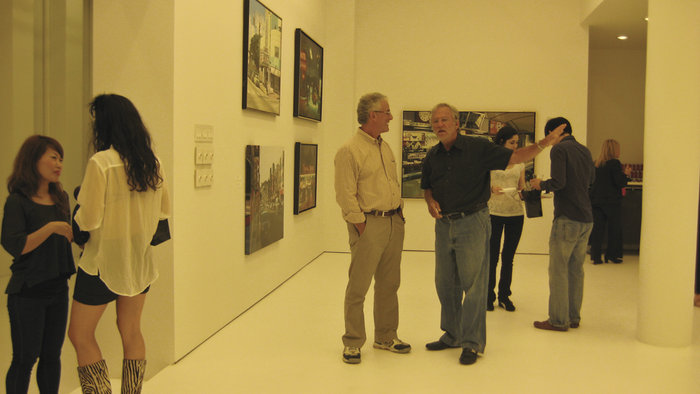Whether sighted or blind, most people are familiar with Braille, the system of raised characters that allow the visually impaired to “read” using their fingertips instead of their eyes. While Braille still exists, in recent years there has been a recognition of people who are sighted but who may be “print impaired.”
“You may be someone with Multiple Sclerosis, or someone who has had a stroke, or someone who has some kind of paralysis. You may have your eyesight, but lack the motor skills, strength, or dexterity in your hands to hold a book or turn a page,” noted Michele Dupey, spokesperson for the Jersey City Free Public Library.
People with such challenges, said Dupey, are now considered to be “print impaired,” because their physical limitations often prohibit them from reading books in the traditional manner. Thus, there are now tools and services available to the print impaired – including the blind and sight impaired – that make it easier for them to continue to enjoy books, magazines, and other printed material.
The Jersey City Free Public Library recently announced a new partnership with the New Jersey State Library Talking Book and Braille Center to provide free portable audiobook players to the print impaired.
Books, magazines, news
Through this free service, anyone who has a certified visual or physical impairment that makes it impossible or difficult to read traditional books can receive from the library an audiobook player. Using this player, which library patrons may keep for as long as they like, customers can then borrow audiobooks from their local library just as they would a traditional book.
Using this device, customers can borrow audiobooks from their local library just as they would a traditional book.
____________
“The machine is relatively portable,” said Dupey. “So, they can use it in different rooms in their home or take it with them when they leave their home.”
Dupey said she believes that most books that are available in print are available through the audiobook selection.
Once certified as having a visual or physical impairment that interferes with traditional reading, a library customer can borrow digital cartridges of audiobooks, download audiobooks and magazines from the internet, and receive access to audio news services. Customers are also still free to borrow from the library books printed in Braille.
All of these services are free of charge to library patrons and are made possible through the Jersey City library system and the New Jersey State Library Talking Book and Braille Center. The center is part of the National Library Service for the Blind and Physically Handicapped, a division of the U.S. Library of Congress.
Why not a tablet computer and commercial audiobook service?
Audiobooks have become quite popular in recent years among owners of MP3 players, like the Apple iPod, and such tablet computers as Amazon’s Kindle series. The popularity and prevalence of these options begs the question, is the Outspoken Library needed in 2012?
“Well, yes,” said Dupey. “Keep in mind, those are commercial options that the customer has to pay for. You pay $200 or $300 for the tablet computer, then you usually have to pay to purchase any audiobook you want to hear. That’s fine for people who want that. But we’re trying to expand free library services for the print impaired. A sighted library patron can come in, check out a book using a library card, borrow the book, and read it. We want our print impaired library patrons to have the same opportunities.”
In addition, noted Dupey, commercial tablet computers are typically touchscreen-based and can be difficult for the visually impaired and people with limited hand mobility to operate.
If you know someone who might benefit from the audiobook service, visit the New Jersey State Library Talking Book and Braille Center at http://njsltbbc.org/application to apply for an audiobook machine. The center can also be reached by calling (800) 792-8322.
E-mail E. Assata Wright at awright@hudsonreporter.com.
